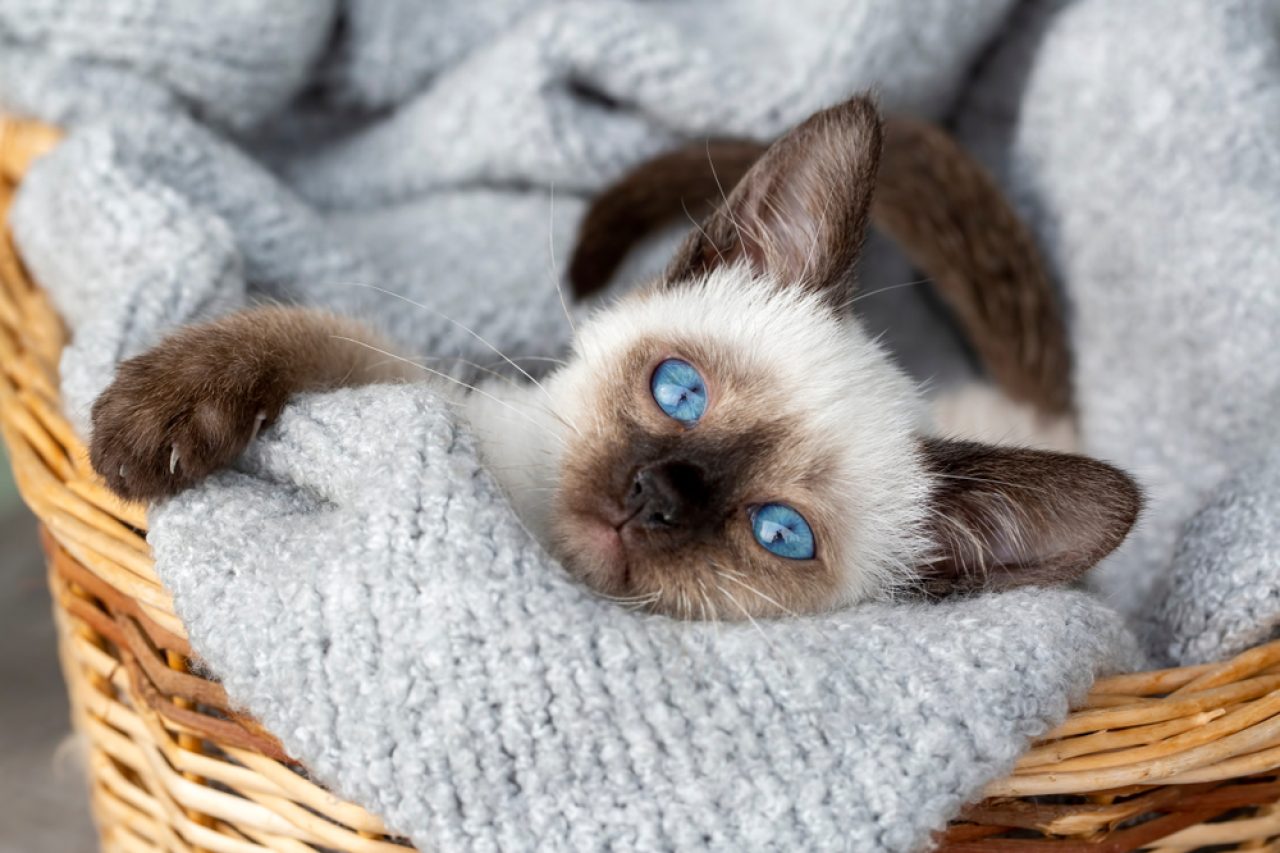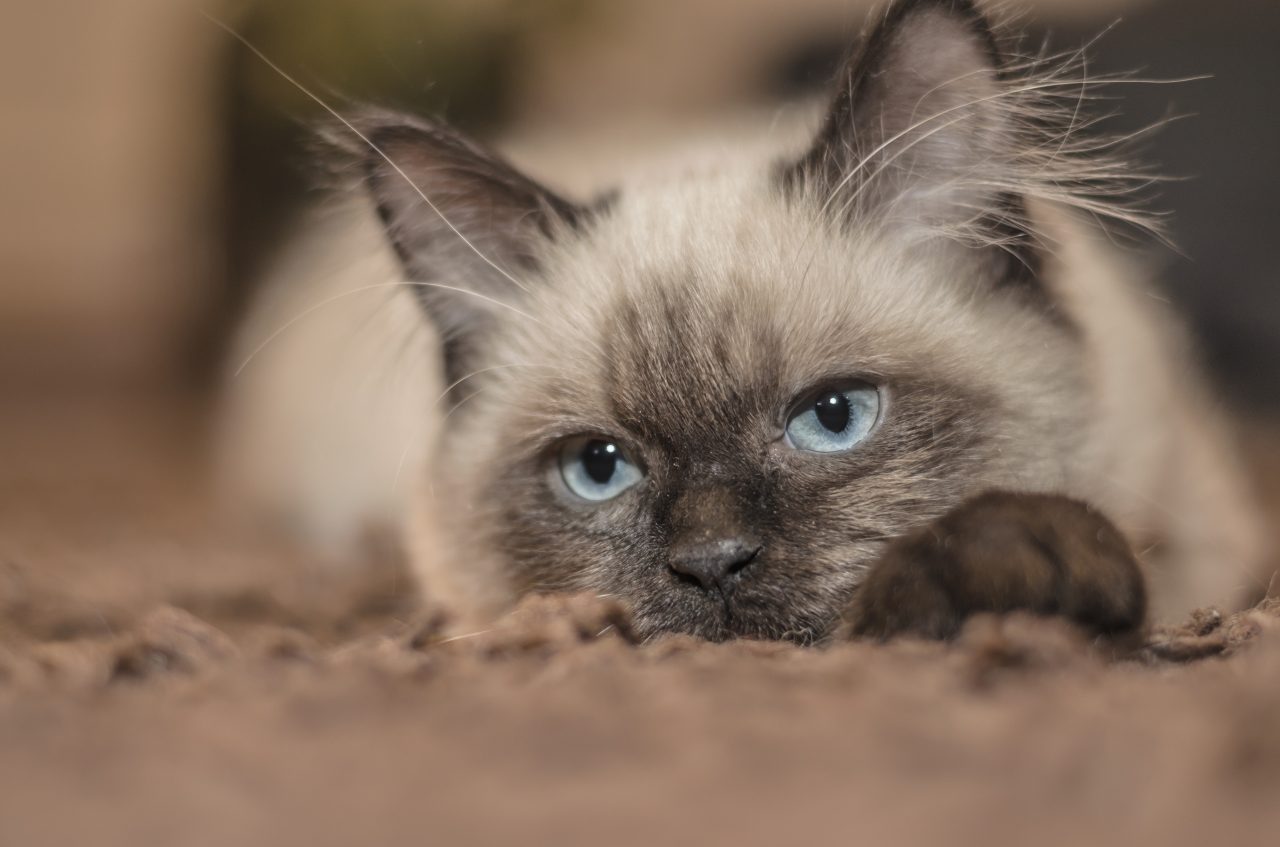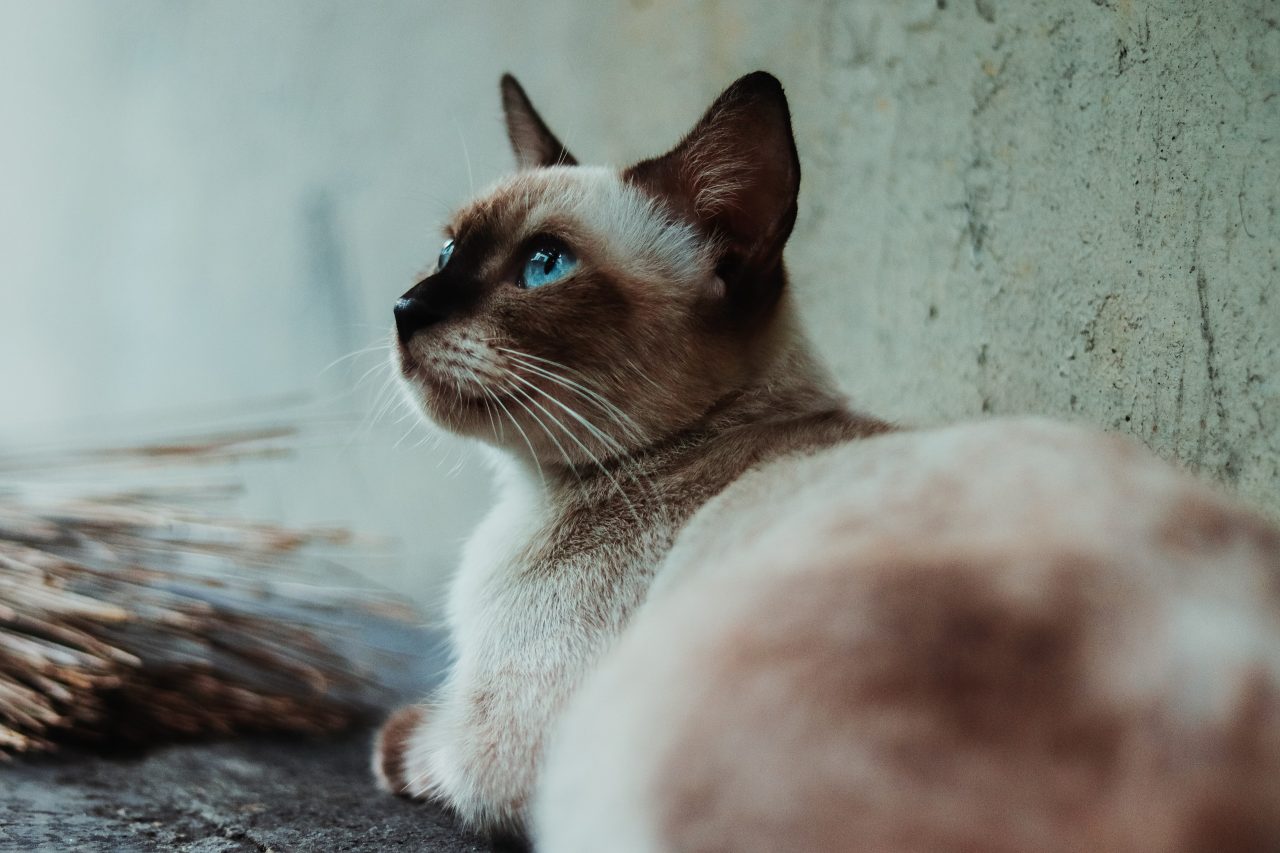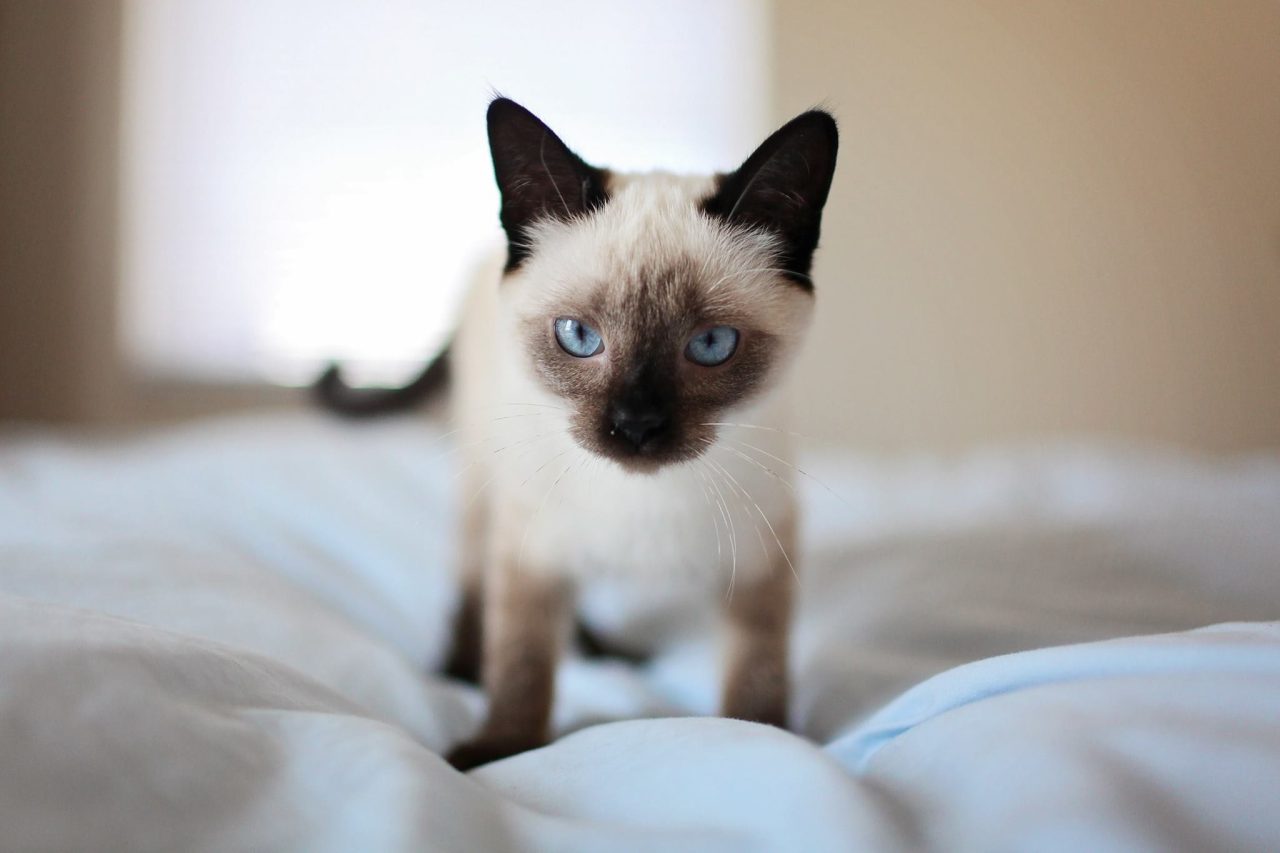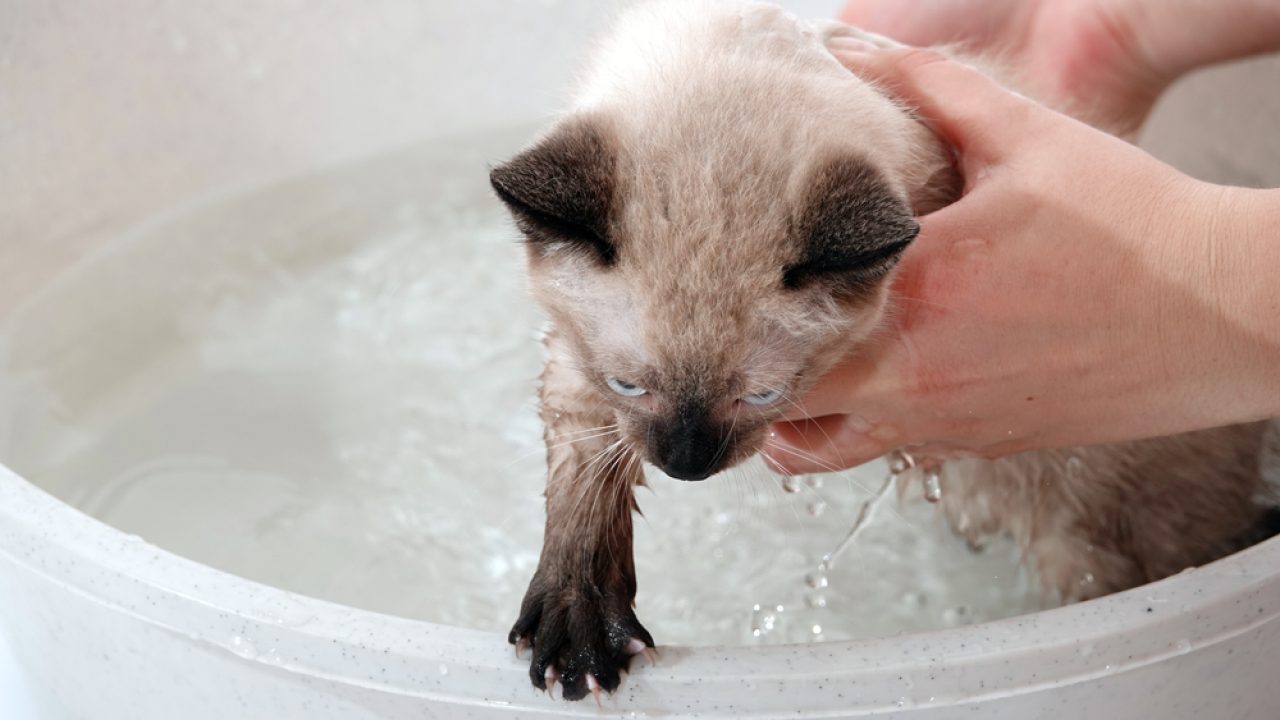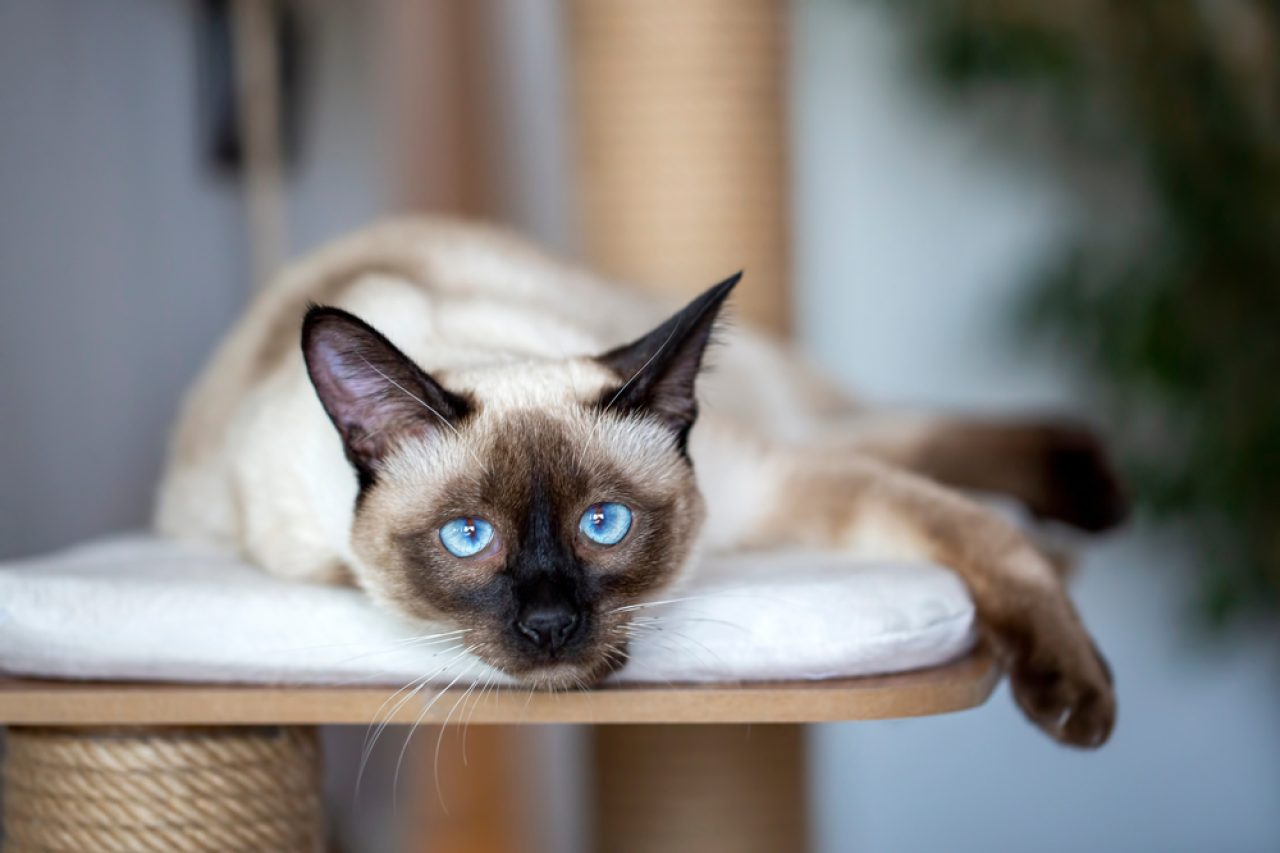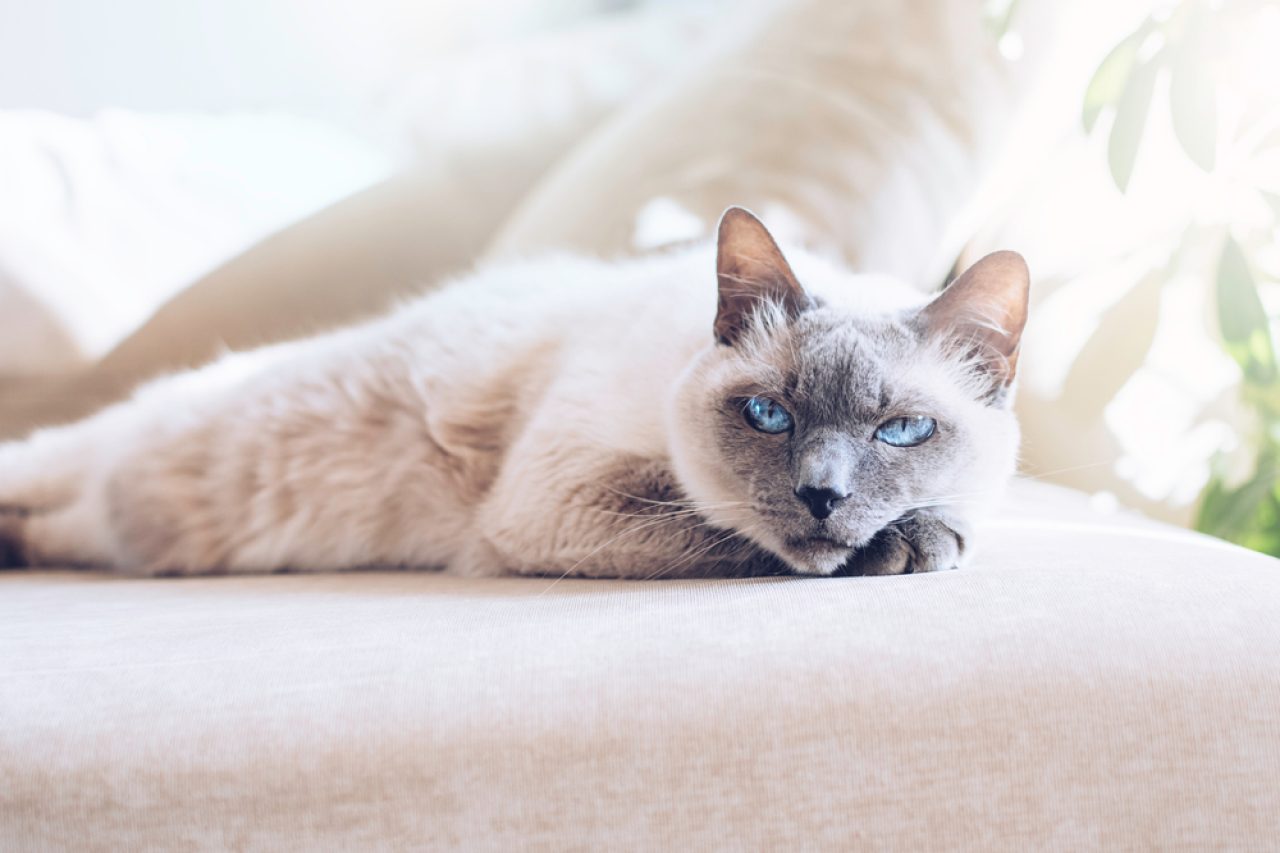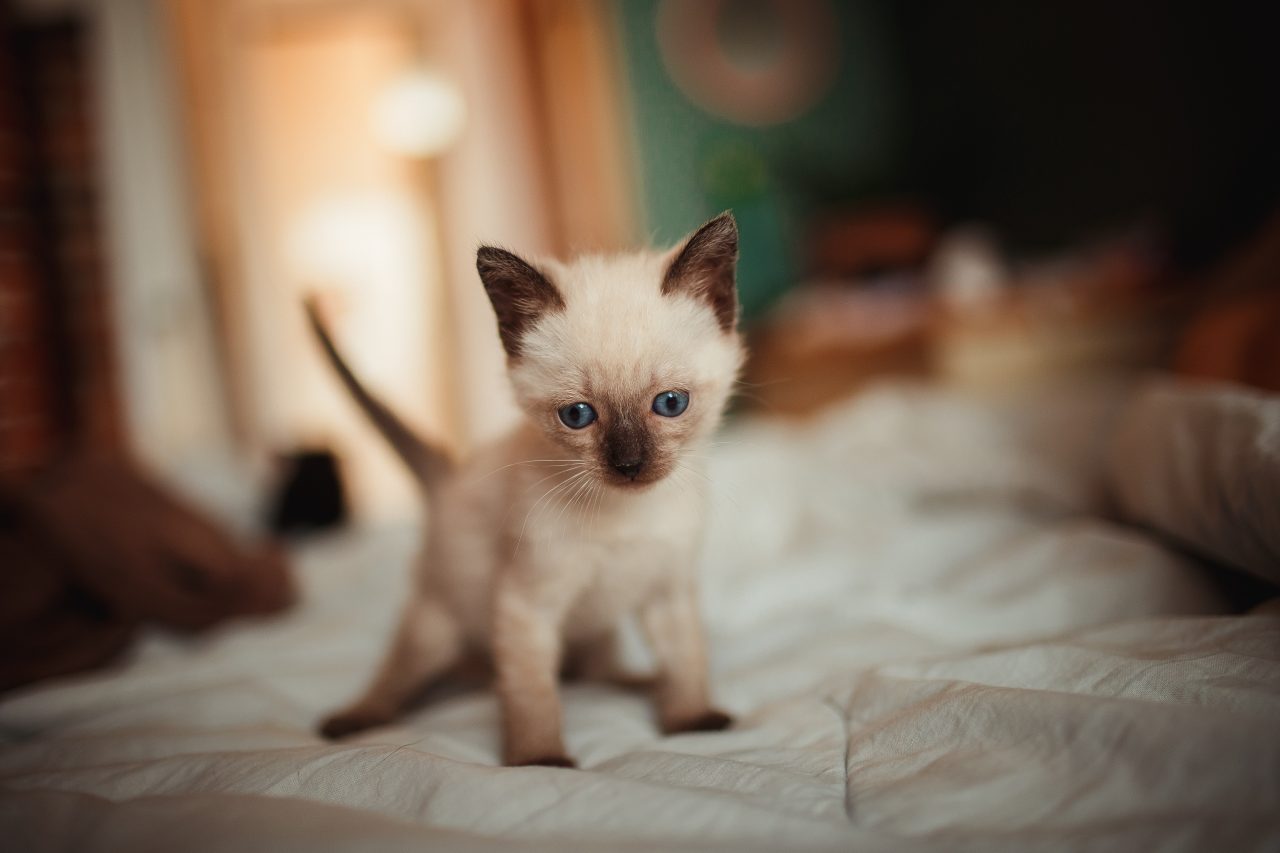📖 Table of Content:
There are plenty of people who, unfortunately, find out they are allergic to kitties. But they say that they don’t get the same allergic reaction with different breeds of cats. Most of them believe some don’t shed allergens, and they use Siamese cats as an example. Are they right? Are Siamese cats hypoallergenic?
The thing is, allergies are not the same for everyone. Some people just get mild symptoms, while some can’t even be in the same room with cats because they might get a severe allergic reaction. So it’s very important they know whether there are any cats that are really hypoallergenic.
To figure that out, we first need to learn why are people allergic to cats, so let’s take a look at that and later conclude if Siamese cats are truly hypoallergenic.
Why are people allergic to cats?
If a person has a cat allergy, they are actually reacting to the proteins that their cat creates. What do you think where can it be found? In the cat’s urine, tears, saliva, and dander. Of course, all felines have them, so it’s easy to conclude that every cat produces these proteins.
Most people say that fur is the number one reason for getting a cat allergy, when in fact, dander is the winner of that contest. That means that every cat who has skin (since her skin makes dander) is guilty of setting off someone’s allergies.
Of course, we won’t put them on trial because they’re so cute. But we’ll always remember that they are the ones to blame.
Their fur is only the accomplice as it helps spread the dander everywhere where your kitty goes. It easily attaches to your clothes, shoes, phone, and other things you carry with you every day. So you can also accidentally make someone sneeze a few times.
That’s because the dander can come in contact with someone you passed by on the street or you can spread it at your workplace. The research proved that 80 to 95% of people who are dealing with cat allergies actually react to the Fel D1 protein, which I’ll talk about later on.
What are hypoallergenic cats?
Since you’re here, I assume you’ve already heard about hypoallergenic pets. But how would you explain that to someone who’s never heard of them? Would you say that they won’t cause any allergies?
Let me help you. Hypoallergenic cats will still affect your allergies, but much less than any other cats. It is believed that more than 10% of the human population is actually allergic to cats. Even though most of us believe that the allergy comes only because of the fur, we can also be affected by our cat’s saliva.
Simply said, hypoallergenic cats are the ones who will make your allergy less severe. But are there any kitties who won’t cause them at all? Let’s find out.
Are Siamese cats hypoallergenic?
So, are Siamese cats hypoallergenic? Unfortunately, there is no such thing as a 100% hypoallergenic cat. There are some that cause fewer problems, and the Siamese cat is definitely one of them. However, if you have allergies, you’re never completely safe around any kitties.
But why are the Siamese cats the chosen ones? That’s because it’s known that their breed produces and sheds less of the Fel D1 protein. And as I’ve already mentioned, that’s the protein that makes your allergies worse.
And since they produce less of it, they are considered to be hypoallergenic. If you know you have a cat allergy, it’s best you don’t get yourself a kitty and choose another pet instead.
However, if your symptoms are mild and you really want a kitten, it’s best you choose a Siamese cat. But don’t be surprised if you start sneezing or coughing a bit more than usual, as no cat is really hypoallergenic, and neither are Siamese ones.
Other breeds that produce less of the Fel D1 protein are Devon Rex, Siberian, and Balinese-Javanese. Together with Siamese cats, these are favorite breeds among people who are prone to allergies.
Can quality cat food help with cat allergies?
Surprising or not, cat food is actually one of the main factors! If your kitty has an inadequate diet, then she might shed more which means that you will be more exposed to allergens that irritate you. Lots of types of food actually include ingredients that are problematic.
Artificial flavoring and colorants, or as we call them additives, can be found in many food products. On top of that food like dairy, beef, and eggs can also cause more shedding. And finally, it’s also important to mention filler ingredients. If you’re not sure what they are, those are corn, soya, rice, wheat…
I know it seems like almost every meal includes something like that, but trust me, there’s plenty of food you can serve to your kitty instead. If you want to reduce shedding, it’s important to choose the right diet.
Let’s look at it this way; If your cat lived in the wilderness, what would she normally eat? She’s a natural hunter, so those would probably be some small animals like mice, birds, and even fish.
When cats live outside, they usually don’t deal with any skin-related issues because their diet is natural for them, and they always know what their body needs. So we need to mimic that and serve them food that has the same benefits (nutrients, proteins, vitamins…) as the food they would in the woods.
So, what should your kitty eat?
It’s important that cat food contains at least 50% of animal protein. Do you know why? That’s because only meat has some really important amino acids. I’m sure you’ve heard of arginine, histidine, and taurine. Well, your kitty needs them to maintain healthy skin and fur.
That means that those acids can help prevent shedding, and that can further help with your allergies. On top of that, they help build muscle and bones and keep your fluffball’s immune system strong. Animal fat is also full of omega-6 and omega-3 fatty acids.
But what are they good for? Those fatty acids are great for maintaining a healthy coat, helping with dry skin, and reducing shedding. In addition to that, fat can play an important role in metabolic processes. That’s because it fastens wound healing and it helps get proper inflammatory responses.
Don’t favor plant-based diets. Your cat is a carnivore, so she should eat meat like chicken, turkey, and liver, as those are full of good proteins. And if you’re looking for food that contains fatty acids, I suggest you try serving salmon, tuna, sardine, or mackerel.
Don’t forget that vitamins and minerals are important for your kitty, just like they are for you. Luckily vitamin B complex, selenium, and vitamin E can all be found in meat. They are amazing as they help hydrate the skin and therefore prevent shedding.
And finally, don’t forget to give your cat a fresh bowl of water regularly!
How to groom your Siamese cat?
If you struggle with cat allergies but you still have a kitty as your little roommate, then you need to know that grooming her correctly can be really helpful.
It helps get rid of most of the dear fur and skin that’s usually full of allergens. This prevents them from spreading around your cozy home and making you sneeze endlessly. It’s truly one of the best tricks for people who are struggling with cat allergies.
I have a few tips and tricks for you. Let’s check them out.
– Wipe your Siamese’s fur with a damp cloth. You should always wipe it with a damp piece of cloth because the dead fur will stick to it. That way, you’ll make sure that all the fur and dander that’s left after the brushing is gone.
– Always brush your cat outside your house. When you’re brushing your Siamese cat, you should always do it outside. If you’re living in a flat, at least try to do it on your balcony.
When you’re grooming your cat, her hair flies everywhere and if you do it inside your house, it will probably stay hidden somewhere and make your allergies worse.
– And of course, bathe your cat regularly. I know that most kittens don’t like water, but they’ll need to face it once a week if they want to stay healthy. And also help their owner who are allergic to them.
The best advice I ever got was to start bathing my cat once a week ever since she was a little kitten. That way, she got used to it and I never had any problems with her and water.
How to live with a cat if you’re allergic to her?
Sometimes people get new allergies in the middle of their lives. And things they were never allergic to before start irritating them. Unfortunately, it can happen to cat owners too. Then they need to make a whole plan of how to still live with their fluffy roommates but help themselves too.
It’s also possible that someone’s allergies are causing just mild symptoms, and they want to get themselves a kitty anyways. Some people have felines in their workplace, and of course, they won’t quit their job because of their allergies.
If you recognize yourself in any of these situations, then I think I can help you! Since we concluded that Siamese cats aren’t completely hypoallergenic, I need to help you figure out how to live with them.
There are actually a few tips and tricks that can help you live with your fluffball but also not have to deal with severe allergy reactions. Let’s check them out!
1) Groom her regularly
If you brush your cat often, then you’ll help her get rid of all the dead skin and fur that would just fly around your home if you didn’t brush it away. Since it flies and then hides somewhere, your allergies will get worse and worse over time as you won’t be able to get rid of all that fur.
Bonus points, your kitty will look at it as a cuddly bonding time and it might strengthen your relationship even more. Also, don’t forget to do it outside! That way, you’ll prevent any fur and dead skin from traveling around your living room.
2) Pay attention to allergen traps in your home
As you’ve probably already learned, allergens can start living anywhere around your house. But they mostly like to choose carpets and upholstered furniture. It’s like a five-star hotel to them and they would never miss a chance to go there for free.
Of course, you won’t get rid of your beautiful furniture and carpets. But what you can do instead, is try to keep them clean all the time. The best advice I have for you is to steam-clean them!
3) Always have a cat-free zone
If you have a kitty, but you’ve recently found out that you’re actually allergic to her, it’s best you make yourself a cat-free zone inside your home. Most people choose their bedroom as their cat-free space where they can go if they feel like their allergies are getting worse.
At least this way, you won’t have to spend your night coughing, sneezing, and dealing with a runny nose.
4) Wash your hands regularly
Well, this one is not difficult to remember. Every time you touch a kitty you’re allergic to, it’s important to keep in mind that you need to wash your hands as soon as possible! That will help minimize the chance of allergens sticking to your clothes, skin, or even your hair.
Never rub your eyes or touch your mouth before you wash your hands! It might cause a severe allergic reaction.
Final words
So, are siamese cats hypoallergenic? Was it a fact or a cap? I would say it’s somewhere right in the middle. You’ve learned that there’s no such thing as a completely hypoallergenic cat. However, there are some that cause only mild symptoms, and Siamese cats are one of them.
If you’re one of those people who are allergic, but you can’t stop cuddling with kitties, then a Siamese cat is the best option for you. Yes, you’ll probably get puffy eyes and a few extra sneezes, but a kitty’s warm hug is worth it. Especially during the upcoming cold winter days!

